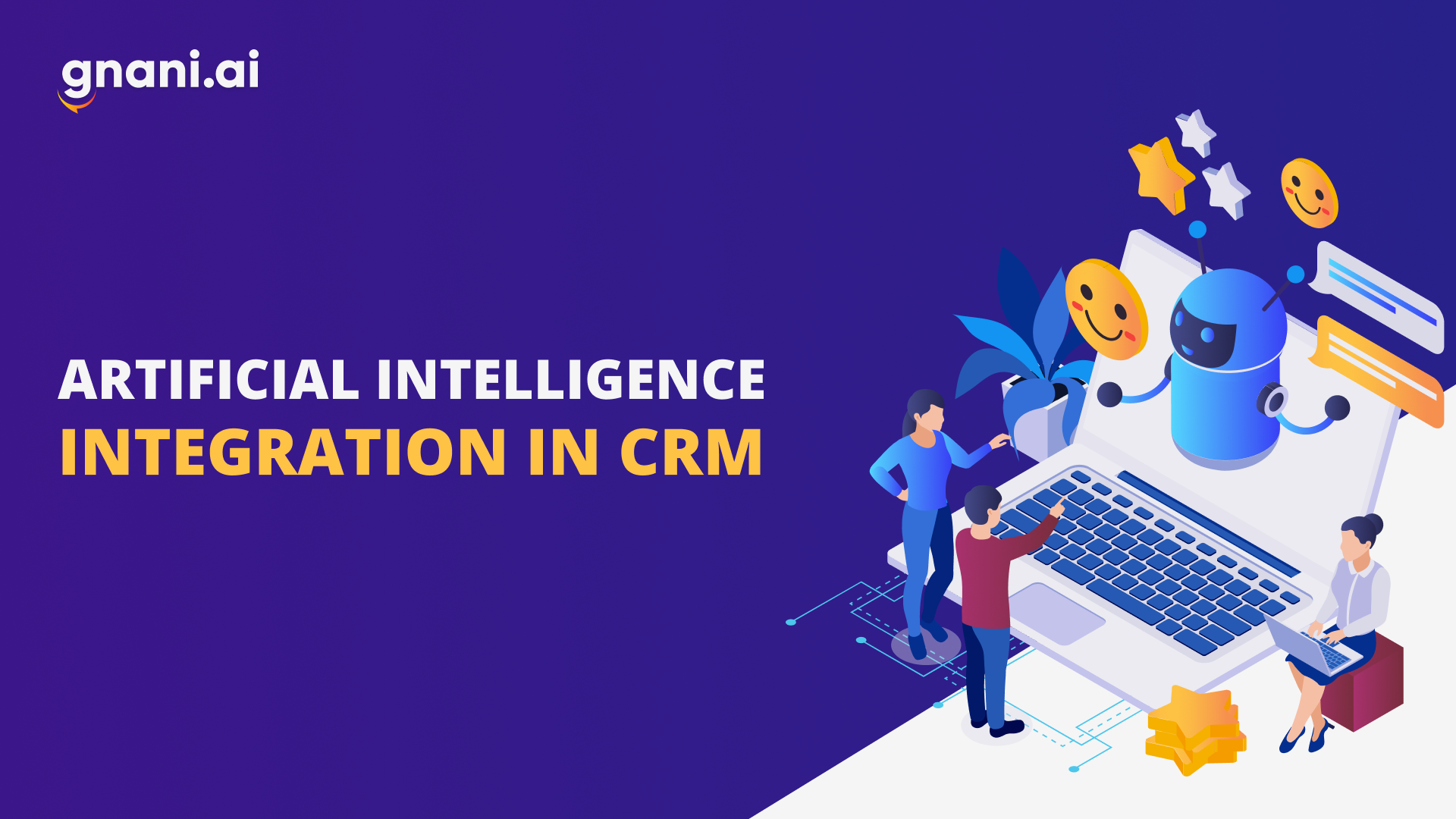The business of fighting for buyer attention and sales is probably the most telling on Marketing and Salespeople. They are at the forefront of delivering the level of customized experience that customers expect from Brands. But how?
This question was what led to CRM. A CRM can analyze market data to provide actionable insights that help Brands improve their go-to-market strategies and campaigns. Successful campaigns thus built go a long way in earning customers’ trust and eventually lead to that coveted spot of customer loyalty. With time and digitization, the available amount of data has become a challenge, in a good way, of course.
On the one hand, some customers keep changing their preferences and buying behavior, and on the other hand, you have enterprises that need to cater to these constant changes. Add the power of the connected world and data exchange, and you’re looking at a highly dynamic marketplace. According to Research and Markets, the continuous demand for innovative solutions to analyze customer information, collate critical customer data, and transform it into a better customer experience strategy are driving factors for CRM solutions across all sizes of businesses. The key to leveraging data for better business is to be able to a) automate repeat, routine tasks and b) accelerate the capacity to collect, interpret and feed insights from data into sales & marketing campaigns.
AI-enabled CRM is freedom from business redundancy or, worst, a painful death
Gaining new customers and keeping old ones is a costly business. In addition, the growing amount of data has complicated business relationships and transactions, making it challenging to identify buying preferences and patterns. The time and effort taken to make sense of unstructured data by human effort alone don’t make business sense anymore.
The key to becoming more customer-centric is a CRM system that has evolved to provide greater precision and better predictions. The latest CRM features prove that the era of more competent, AI-integrated CRM is here. Not only does an AI integrated CRM system manage routine tasks, but it also gathers and analyses data to get actionable insights. An AI-enabled CRM takes care of everything ad helps humans focus on how to use the insights to improve their customer experience and, eventually, their business trajectory.
Apart from the obvious benefits like better customer experience, lead qualification, personalization, and extensive data management, here are some others:
Accurate customer profile, better conversion
The ability to interpret data enables the capability to create precise customer profiles for better, personalized, and timely offers. This gives a push to faster and improved conversions.
Customer confidence
Consistency in delivering customer delight by remembering their preferences, personal details like birthdays and anniversaries, etc., earns the confidence of customers. It can even learn from past mistakes to improve itself. An AI-enabled CRM enables businesses to deliver this level of customer experience in a completely safe and secure way.
Creating new applications
Because of its ability to collect and process large amounts of data, enterprises can build customer-driven, straightforward applications that customers can use to interact with them.
Engaging content creation
A brilliant tactic of leveraging an AI-enabled CRM is to use its insights to create content that customers will love to consume and share. Creating engaging and relatable content becomes possible because the AI integrated CRM interacts with different customers and understands both their evident and unobvious buying patterns derived from the conversations.
The rise and rise of Conversational AI in CRM
According to Statista, 8.4 billion devices with digital voice assistants will be on the market by 2024. Natural language processing or NLP, voice tech, conversational UI, automatic speech recognition, advanced dialogue management, deep learning, and machine learning are set to make their mark in CRM.
ResearchandMarkets says that the global conversational AI market size will grow from USD 6.8 billion in 2021 to USD 18.4 billion by 2026, at a Compound Annual Growth Rate (CAGR) of 21.8% during the forecast period. Conversational AI provides conversion-driven targeting for marketing and sales teams. After considering these factors, it understands buyers’ choices, patterns, buying platform preferences, and decision influencers and offers appropriate options. It provides these options when the time is right and the platform there are in. by accommodating customers’ sentiments and emotions, they are able to create more meaningful conversations.
Conversational AI in CRM helps businesses deliver the feel-good, highly personalized experience that customers demand, which is why they are on their way from being an option to a de facto feature. Managing rising customer expectations at scale is a reality and integrating an AI-enabled CRM is the logical solution. Whether it is an automated self-service or live agent assistance, Conversational AI can assist people on different channels so they can communicate more easily, quickly, and effectively than was possible before.
Gnani.ai’s assist365™ comes with easy-to-deploy options and a plethora of integration options to make your AI integration in CRM job simple.





